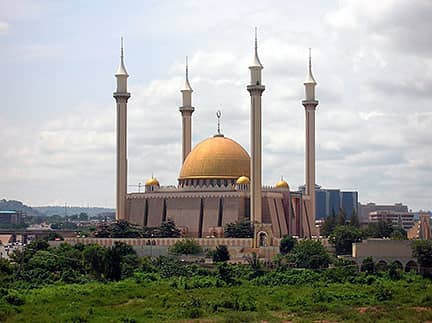By Abdulrahman Aliagan, Abuja
In a significant move to enhance the religious and social responsibilities of the Abuja National Mosque, the Nigerian Supreme Council for Islamic Affairs (NSCIA) has appointed five new imams to serve as resident and visiting clerics. This announcement was made in a communiqué issued at the conclusion of the 10th meeting of the Expanded General Purpose Committee (EGPC) of the NSCIA, held at the mosque.
The appointments aim to bolster the capacity of the mosque in catering to the spiritual and social needs of Nigeria’s Muslim community. The new imams are:
Prof. Khalid Abubakar Aliyu (Visiting Imam, North Central), Dr. Abdulkadir Salman Sholagberu (Visiting Imam, North Central), Prof. Luqman Zakariyah (Resident Imam, Southwest), Ustadh Haroun Muhammad Eze Esq. (Resident Imam, Southeast)
These additions join the existing team, which includes:, Prof. Ibrahim Makari (Visiting Imam, Northwest), Prof. Muhammad Kabir (Visiting Imam, Northeast), Prof. Ilyas Usman (Visiting Imam, Southeast)
Meanwhile, Sheikh Ahmad Onilewura, a resident imam from the Southwest, remains on sick leave, further necessitating the new appointments.
Meeting of Islamic Leadership
The meeting, presided over by the President-General of NSCIA and Sultan of Sokoto, Alhaji Muhammad Sa’ad Abubakar III, brought together prominent Muslim leaders from across Nigeria. Key attendees included the Deputy President-General of NSCIA (South), Alhaji Rasaki Oladejo; Etsu Nupe, Alhaji Yahaya Abubakar; Secretary-General of NSCIA, Prof. Is-haq Oloyede; and other notable scholars and community leaders.
Call for National Unity and Reforms
Beyond the appointments, the council addressed pressing national issues, urging political leaders to engage in trust-building and genuine dialogue over contentious tax reform bills currently before the National Assembly. Highlighting the need for unity, the NSCIA called for an end to political polarization and stressed the importance of fostering a collaborative atmosphere to address the nation’s challenges.
The council also commended the Federal Government, traditional rulers, and religious leaders for their roles in reducing communal clashes, acknowledging their contributions to fostering peace across the country.
Economic Challenges and Recommendations
In response to the current economic climate, the NSCIA noted the hardships Nigerians face and urged the government to implement measures that create a more business-friendly environment. It emphasized the need for prioritizing food security and education, viewing these as essential for safeguarding citizens’ well-being.
The council also expressed concern over the relationship between illegal mining and the growing number of out-of-school children. It called on Muslims and the broader community to assist the government in combating illegal mining activities, which undermine social and economic stability.
Looking Ahead
The appointment of the new imams marks a pivotal step in enhancing the Abuja National Mosque’s role as a spiritual and social hub for Nigeria’s Muslim population. With the ongoing efforts to address pressing national issues, the NSCIA’s leadership reaffirmed its commitment to fostering unity, peace, and development across the country.

